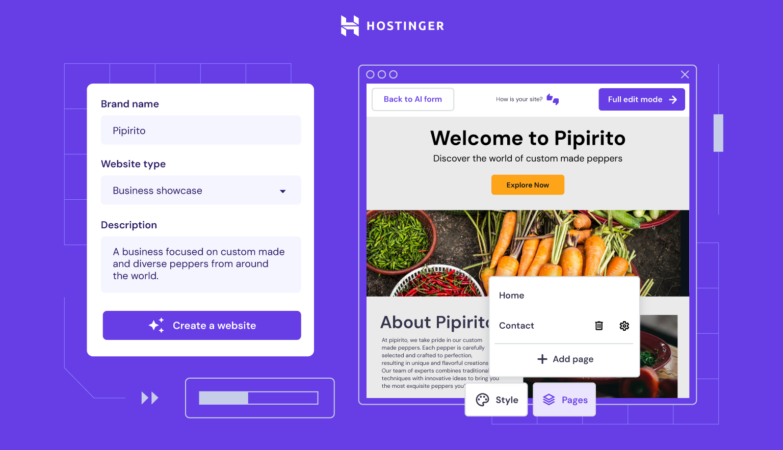B2B commerce, an abbreviation for business-to-business electronic transactions, involves online sales of products or services from one business to another. This contrasts with B2C commerce, where businesses sell directly to individual consumers online.
B2B commerce denotes online transactions between two enterprises. Companies often depend on other firms for their operations, from procuring equipment or materials to utilizing services like manufacturing or distribution. As business activities increasingly shift online, B2B dealings have followed suit.
Varieties of B2B commerce
Online B2B commerce encompasses a variety of transaction types and partnerships. Here are some typical B2B commerce entities:
- Manufacturers: Manufacturing forms the foundation for businesses dealing with tangible goods. Given the significant expense tied to establishing and maintaining production facilities, many businesses prefer to delegate their manufacturing needs to external parties, often in regions like China where labor is less expensive.
- Wholesalers: This involves a business purchasing products in large quantities from another entity and then retailing them to end consumers at an elevated price, pocketing the margin. Many firms procure bulk items, frequently sourced from China, at reduced rates. Platforms like Alibaba serve as a bridge between wholesalers and resellers.
- Distributors: As the internet has evolved into a prime promotional medium, distribution has seen a significant shift towards online channels. B2B distributors utilize methods such as SEO and social media to amplify the visibility of their client businesses’ products and services.
- Software-as-a-Service (SaaS): This B2B software paradigm, popularized by Salesforce, has emerged as one of the most rapidly expanding models for tech firms centered on digital commerce. In the SaaS model, businesses offer other enterprises access and licenses to their proprietary software. In return, these enterprises remit a consistent monthly or yearly fee to maintain access to the software.
Examples of B2B Commerce
- Amazon: Apart from its consumer-focused operations, Amazon provides a platform for businesses to conduct online transactions. Moreover, they have Amazon Web Services (AWS) that allows cloud-centric software firms to externalize their cloud framework.
- Alibaba: Predominantly a B2B-centric platform, Alibaba stands as one of China’s largest commerce platforms. It acts as a hub where businesses can find bulk-selling wholesalers or collaborate with Chinese manufacturers for tailored product designs.
- McKesson: As the leading distributor of medical supplies and drugs in the US, McKesson offers distribution services, ensuring the specialized care required for delicate medical equipment is met.
- Google: Beyond its primary consumer search engine, Google presents a plethora of B2B software solutions. GSuite provides businesses with cloud-based tools like word processing and calendars, whereas Google 360 delivers vital tools for digital marketing professionals. Additionally, their search result advertisements form a significant revenue stream.
- Facebook: While primarily consumer-driven, Facebook, alongside its subsidiary Instagram and other platforms like Twitter and Snapchat, capitalizes on its B2C services by charging businesses for advertising.
- Microsoft: Beyond its popular consumer software, Microsoft delivers a wide range of B2B solutions. They provide business licenses for products like Office and Windows, along with hardware, marketing tech, and cloud hosting services.
- Salesforce: As a global frontrunner in the B2B software sector and a key figure in championing the Software-as-a-Service (SaaS) model, Salesforce offers CRM tools aiding sales teams in managing potential and existing clientele.
- Oracle: A titan in the B2B commerce landscape, Oracle supplies Enterprise Resource Planning (ERP) software, aiding businesses in optimizing various organizational tasks like accounting, supply chain management, and more.
B2B vs. B2C Commerce
While B2B and B2C commerce platforms might seem alike, B2B platforms often incorporate features tailored to business-specific needs, which are distinct from general consumers.
For instance, B2B platforms might offer bulk order pricing, catering to businesses needing large volumes for their teams. Moreover, they might introduce varied payment methods beyond conventional ones like credit cards or PayPal, considering B2B purchases often involve approval stages and invoicing for hefty orders.
Unlike typical consumer sales, B2B deals, especially in SaaS, may necessitate direct interactions and negotiations. Rather than making immediate online payments, B2B customers might contact sales representatives via the platform to finalize deals.
However, the distinction between B2B and B2C platforms can be blurry. Take Amazon: while renowned as a leading B2C platform, it also facilitates other businesses in selling to consumers, acting as both a B2C and B2B solution.
B2B2C stands for business-to-business-to-consumer, where a company collaborates with a business intermediary to tap into their customer base.
For instance, Instacart partners with grocery chains, extending delivery services. Though these chains benefit momentarily, Instacart eventually captures a significant share of their customer base. Similar models are employed by Uber Eats and DoorDash with local eateries.
While such partnerships can be win-win, they can also evolve into a power imbalance, with service providers gaining undue leverage over the partnered businesses, often imposing higher fees.
The growth of B2B commerce has ushered in numerous platforms assisting businesses in creating online stores. While smaller entities might lean on popular B2C solutions like Shopify or Bigcommerce, specialized B2B platforms are designed to address business-specific needs.







